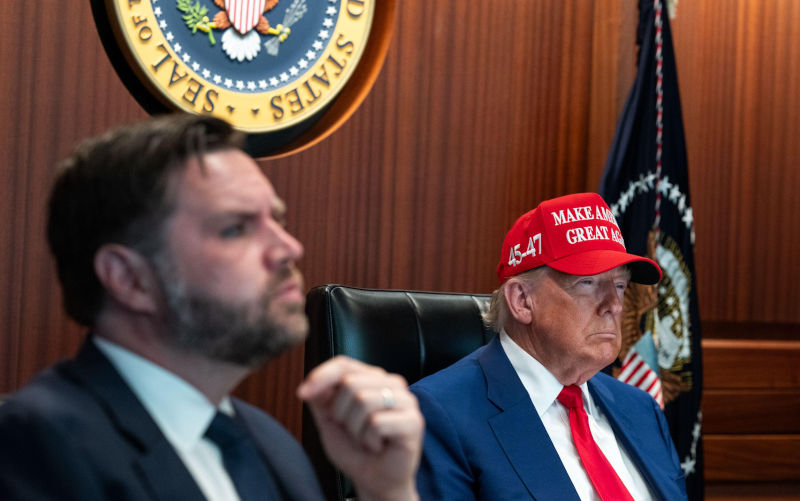So... calling for peace isn’t enough, but dropping bombs gets a free pass?
July 3, 2025
When China submitted a draft UN Security Council resolution calling for an immediate ceasefire between Israel and Iran, the response wasn’t debate or discussion. It was suspicion.
The ABC News piece “ As ceasefire looms, China's UN peace talk highlights limits of Beijing's influence” basically argued that Beijing’s influence wasn’t strong enough, its motives were too self-serving, and its diplomatic voice too weak to matter.
China wasn’t trying to stop a war, the analysis claimed, it was just shielding its regime and protecting oil interests.
Here’s the thing, though: this framing tells us more about a common Western media inconsistency than it does about China’s actual intentions.
Our media love talking about defending a rules-based international order, but the moment someone actually uses those rules, they get suspicious.
Meanwhile, they excuse those who violate the system’s most basic foundations.
The universal rules exist for a reason
Look, under the UN Charter, unilateral military action is prohibited unless it’s self-defence or authorised by the Security Council. Pretty straightforward stuff.
A US strike using a bunker-busting bomb on Iranian nuclear sites — without either justification — is a serious challenge to international law.
China’s ceasefire call? That actually aligns with the system we’re supposed to be defending.
Whether it’s motivated by national interest doesn’t really matter here. It reinforces the principle that force should be constrained by law, not just raw power.
When the ABC article reduces every diplomatic move to “regime protection” while ignoring the legality of military strikes, it’s basically turning international law into selective rhetoric.
If sovereignty matters at all, we can’t afford this kind of inconsistency.
Strategic diplomacy is still diplomacy
All major powers act out of self-interest – that’s just reality.
The US talks about democracy, China prefers non-intervention, Iran emphasises sovereignty.
None of this is particularly altruistic, but so what? That doesn’t make these positions illegitimate.
China’s ceasefire call serves its interests – keeping oil flowing, avoiding military entanglement. But it also serves everyone’s interest in avoiding a wider war.
Dismissing it as cynical just because it’s strategic misses how diplomacy actually works.
The ABC article paints China’s position as isolated, but that’s not really accurate.
You hear similar calls across the Global South – countries that have been dealing with proxy wars and unilateral interventions for decades. For many of them, the question isn’t why China called for peace. It’s why others got to escalate without consequences.
Influence works in different ways
The ABC critique kept hammering on how China “played no direct role” in the ceasefire, unlike Trump, who took credit for halting hostilities.
But diplomacy isn’t just backroom deals and photo ops. It’s also about setting boundaries and shaping what the world considers legitimate.
Through the Security Council, China helped formalise international condemnation and push for restraint. That’s not theatre – that’s how the system is supposed to work.
If we only recognise military actors as legitimate, then we don’t have diplomacy anymore. We just have managed coercion.
Sure, UN resolutions don’t end wars by themselves. But they influence global perceptions of what’s acceptable.
That matters, especially when the use of military force is becoming increasingly normalised.
When criticism itself is the problem
What bothered me most about the ABC analysis was how peacemaking itself became suspicious – but only when China did it.
When the US drops bombs, that’s strategy. When China calls for a ceasefire, that’s manipulation.
Strategic positioning is universal. What should matter is whether international norms get invoked to reduce conflict – not who speaks first or with what motivation.
This narrative doesn’t just distort the story. It legitimises unilateral force while delegitimising peaceful tools like UN diplomacy.
It teaches us that some powers can break the rules while others get mocked for trying to uphold them.
A public broadcaster should do better
The ABC is Australia’s well-respected taxpayer-funded broadcaster. It has a responsibility to inform with balance, fairness, and integrity. Its Charter requires presenting diverse perspectives and holding power to account – not just echoing it.
When the ABC scrutinises peaceful diplomatic proposals more harshly than military escalations, it’s not being neutral. It’s mirroring global power imbalances instead of questioning them.
In complex conflicts, true neutrality isn’t passivity – it’s even-handedness.
Here’s what actually happened: Trump ordered a high-intensity strike on Iran’s nuclear infrastructure. Hours later, he declared the war over.
Within a day, missiles were flying again. Iran retaliated. Israel responded. The conflict reignited.
And somehow, much of the commentary focused not on that escalation but on why China hadn’t done more to prevent it.
It shouldn’t matter who calls for peace. What matters is that the call is made through the institutions we all claim to support.
If international rules mean anything, they have to apply to everyone.
Otherwise, the “rules-based order” just becomes a slogan for whoever’s powerful enough to ignore it.
Declaring peace after dropping the region’s most destructive non-nuclear bomb — then watching the war restart — isn’t leadership.
It’s theatre.
Is that enough?
The views expressed in this article may or may not reflect those of Pearls and Irritations.

